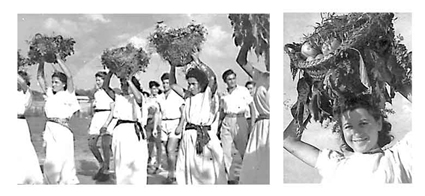30.1.08
Abraham 2
Hi Renate,
That is such a clear and easily understood explanation... I love it.
What a pity so many people don't recognise their own decision making decides the path of their future -
"...that by making their own decision they have taken their own future into their own hands. And, by making their own decisions, they have also taken responsibility over their actions, individually. The onus has now shifted to each of them according to their individual deeds..."
- and then they run to their lawyers to sue whomever, whenever a disastrous outcome has been the result of their silly, stupid thoughtless decisions actions in the first place!
Signed by Silkhobby.
I think that Abraham by embracing the whole of the universe in his monotheistic understanding gave us not only the understanding that the universe as a whole is inter-depended, but also the understanding that every action taken individually or as a group; has ramification that effect the whole of creation. Hence, our responsibility as an individual, and as a group or society, is of prime important.
We only need to look into what is happening today. We can see so vividly the outcome of human action taken during the last say, 50 years.
For example,
The pollution we have created through the use of fossil fuel, The mono-agriculture of annuals that brought about deserts and dust bowls, as well as salinity in the land, and much more.The list is endless.
And here comes the responsibility of the researcher in any other field of endeavour, as well as that of the various industries and commerce to look outside the small sphere of his/hers/their area of interest and see the broader and more embracing, long term results or influence of their action.
And here also comes the responsibility of society as a whole: It needs to become more responsible and responsive towards the world and the environment that give us life by sustaining it.
And here Abraham greatness lies. He understood this already 4000 years ago, and it guided us through the ages.
However now in the last hundred years or so, we have decided to forget it, for we think we know better, AND we, the society at large, are already ripping some of the unpleasant consequences of our actions.
Renate
http://www.promisedland-renate.com
24.1.08
Abraham
17.1.08
Accolade
Few days ago I was so thrilled to received this email from a reader, that I felt I should share it with you. So here it is;
13.1.208
Hi Renate
I just thought that I would write and tell you how much I enjoyed reading your fascinating book. It held me captive over a period of two days solid reading and I can say you led me along with such interest that I was reluctant to leave the book down.
It was great to see that because of circumstances you had to move from what could have been a very comfortable home to a life full of challenges. You met these head on and overcame many obstacles, which would have left others in a heap…
Thank you Renate for sharing your life experiences with me your reader…
Kind regards
June Cantrell
If you want to see more of my book, click on the link below, or go direct to Amazon by clicking the link on the right above the book cover photo
Renate
http://www.promisedland-renate.com
12.1.08
A tree from biblical times
2.1.08
Marriage – 3rd posting (previously – Oprah, Dr. Phil divorce and marriage )
Click on the link below to read more

Bicurim feast in the kibbutz highschool



